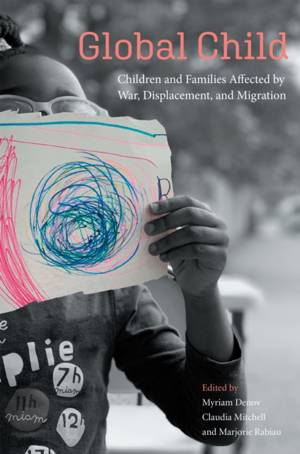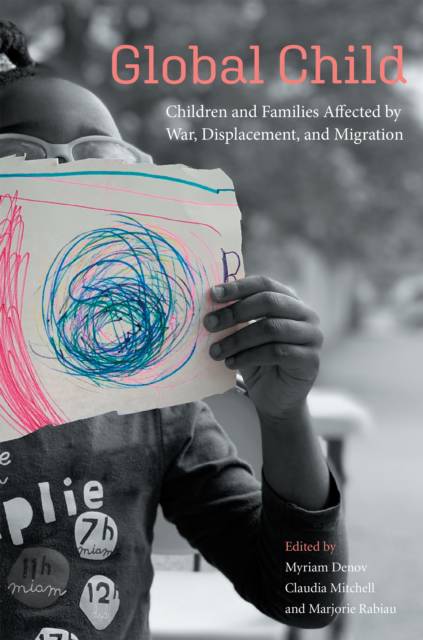
- Afhalen na 1 uur in een winkel met voorraad
- Gratis thuislevering in België vanaf € 30
- Ruim aanbod met 7 miljoen producten
- Afhalen na 1 uur in een winkel met voorraad
- Gratis thuislevering in België vanaf € 30
- Ruim aanbod met 7 miljoen producten
Zoeken
Global Child
Children and Families Affected by War, Displacement, and Migration
€ 75,95
+ 151 punten
Omschrijving
Armed conflicts continue to wreak havoc on children and families around the world with profound effects. In 2017, 420 million children--nearly one in five--were living in conflict-affected areas, an increase in 30 million from the previous year. The recent surge in war-induced migration, referred to as a "global refugee crisis" has made migration a highly politicized issue, with refugee populations and host countries facing unique challenges. We know from research related to asylum seeking families that it is vital to think about children and families in relation to what it means to stay together, what it means for parents to be separated from their children, and the kinds of everyday tensions that emerge in living in dangerous, insecure, and precarious circumstances. In Global Child, the authors draw on what they have learned through their collaborative undertakings, and highlight the unique features of participatory, arts-based, and socio-ecological approaches to studying war-affected children and families, demonstrating the collective strength as well as the limitations and ethical implications of such research. Building on work across the Global South and the Global North, this book aims to deepen an understanding of their tri-pillared approach, and the potential of this methodology for contributing to improved practices in working with war-affected children and their families.
Specificaties
Betrokkenen
- Uitgeverij:
Inhoud
- Aantal bladzijden:
- 268
- Taal:
- Engels
- Reeks:
Eigenschappen
- Productcode (EAN):
- 9781978817739
- Verschijningsdatum:
- 13/01/2023
- Uitvoering:
- Paperback
- Formaat:
- Trade paperback (VS)
- Afmetingen:
- 152 mm x 234 mm
- Gewicht:
- 439 g

Alleen bij Standaard Boekhandel
+ 151 punten op je klantenkaart van Standaard Boekhandel
Beoordelingen
We publiceren alleen reviews die voldoen aan de voorwaarden voor reviews. Bekijk onze voorwaarden voor reviews.










